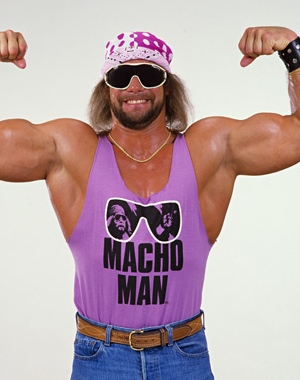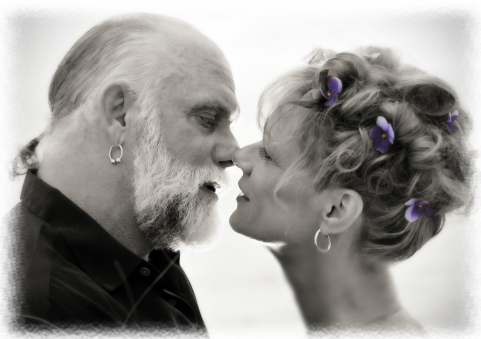|
|---|
Sunday, December 27, 2009

Examine the spirits that speak in you. Become critical. --Carl Jung
For Christmas, my girlfriend bought me The Red Book by Carl Jung. It's a gigantic book with spellbinding illustrations and exquisite German calligraphy--the second part of the book is a lengthy introduction and translation of the work.
I used to read a lot of Jung. As an adolescent, I went through a Jung phase. I recall reading the fat white psychoanalytic volumes, The Archetypes and the Collective Unconscious, Symbols of Transformation, Alchemical Studies . . .
What drew me to these scholarly works I could barely understand? It was the prolonged stage of my life when I always had a book in front of me, my eyes fixed on the pages, almost obsessively. And yet, if you were to ask me to explain what I was reading I couldn't tell you--
Jung's scholarly work was elusive enough to capture my imagination. I could project anything onto the pages--and I underlined and highlighted furiously. I communed with these books I hardly understood.
Buddhism was something I experimented with for about five years. This was the period of my sobriety--after years of drug abuse. Disciplined, vegetarian, clean and sober, I exercised profound control over all areas of my life. I meditated, read spiritual books, and only on occasion wanted my life to be otherwise.
Eventually I grew away from this rigid lifestyle. Somewhere I faltered. I stopped going to Zen "sits". I went out to bars once in awhile. Picked up smoking.
New Age spiritualism turned me off. Not that Jung ever belonged to that movement. But he practically heralded it, and whenever I would think of Jung, I would think of those New Age bookstores sprouting up everywhere in the city. So I stopped thinking about him.
At the tail end of another reckless period of my life, I've returned to Dr. Carl Jung. Over Christmas, I read The Undiscovered Self. My father has an entire shelf devoted to Jung. My impulse was to read as much as I could before plunging into The Red Book, so as to understand it better . . .

The story behind The Red Book is this. At the time of Jung's death, an unfinished manuscript entitled "The Red Book" was discovered. It was stated in his will that all of his published, scholarly work should be made available to the public, but Jung did not take a position one way or the other on "The Red Book."
This may have been because "The Red Book" did not fit into an easy categorization for one of the founders of psychoanalytic theory--it was a creative work. Inspired by Nietzsche's Thus Spoke Zarathustra, Carl Jung set out to write an account of his "fantasies," or confrontations with his unconscious. The book began as a series of notebooks, called "black books," which were then used to create the final version of "The Red Book".
I am a lover of pictures. If you know anything about my online presence, you will know that I post an enormous amount of images on the Escape into Life Tumblr. Turning the pages of Jung's Red Book, I sense a similar visual tendency in him--an obsession with design, color, typography . . . and then the tale itself, which has been described as both archaic and modern, fascinates me. But I haven't begun reading it yet; I've only thumbed through the German text, a visual treat, a cornucopia of symbols.
Let me return to my experience on Christmas night, reading The Undiscovered Self. It's important, I feel, because it cemented my convictions about quitting drugs and alcohol for the last time. I sensed from before that my obsession with drugs was a chimera, but I had to go through the heavy use one more time. I had to re-learn what I had forgotten.
I had been tempted by the promise of a carefree life. It started with a girl and proceeded from there, to smoking cigarettes, to going out to the bars, to taking drugs. The disciplined life seemed so austere, so dry, and unnecessary. I wanted something new. I craved novelty.
But this was not novelty. This was repetition. I had been here before--like a blind rat turning the same corner, entering the same dead end. My conception of myself never changes. It is a wonderful script because it is so utterly the same; I live it over and over and over again.
The Undiscovered Self:
When the fantasies reach a certain level of intensity, they begin to break through into consciousness and create a conflict situation that becomes perceptible to the patient himself, splitting him into two personalities with different characters.
Fantasy does this to me--it splits me into two different people, each in conflict with the other. I fantasize about drugs or women, about getting high or having a romantic encounter, and soon I'm at war with myself. I'm at war with the part of me that wants to get high or have sex and the part of me that thinks it's not such a good idea.
And the fantasy grows. It grows until it tears me apart, and the next thing I know, I'm acting out that other person--the cheater, the liar, the addict.
What does it take to keep the human passions in line? It seems I barely manage. With advertisements everywhere telling me to eat this and buy that, I wonder how modern man is able to have a mind of his own. We're pulled out of ourselves constantly. But I don't need Hollywood pulling me out of myself when I have a built-in fantasy world doing it for me.
The Undiscovered Self:
This task is so exacting, and its fulfillment so advantageous, that he forgets himself in the process, losing sight of his instinctual nature and putting his own conception of himself in place of his real being. In this way he slips imperceptibly into a purely conceptual world where the products of his conscious activity progressively replace reality.
How these lines resonate with me! I've even chosen the name "Lethe" for my alter ego. Lethe comes from the River of Forgetfulness in Greek mythology. I've been using the name in my fiction for years. When I read the words, "he forgets himself in the process," I smile. Because that's why I chose the name to represent me. I forget. And my forgetfulness is my character, my original sin.
But let's talk about what Jung says here: "putting his own conception of himself in place of his real being."
What does it mean? It means that our conscious self, or ego--constituted primarily by its aspirations and inner problems, by its suffering--is merely an idea of the self, and not the real self.
How do I know this is true? Because mostly who I parade in front of my friends is who I think I am--it's the elaborate narrative I've subsumed into my personality. And if you're a writer, like me, you're good at telling stories.
My "conception" is essentially a story I have about myself. It has a pattern-like quality. No matter what happens to me in my life, what unusual events befall me, experience is sublimated by my ego or conscious self. I absorb everything into my conception of myself. And I live in the (fake) knowledge of myself. But this is only my conscious self, and sadly, it is a fraction of my spiritual person.
When Jung says "the products of his conscious activity progressively replace reality," he is talking about the negative potential of thoughts. Each thought that occurs, sometimes with a strong force of emotion, perpetuates the illusion of the conscious self and further separates us from reality. We lose touch with the immensity of human experience when we live inside the repetitive script of our conscious, thinking selves.
The irony of being human is that we seek to escape our "selves." We are drawn to novelty and new experiences, new lovers, new foods, new ideas . . . The irony is that within the confines of limited ego-consciousness, we are determined to find a way out. Our escapes, however, only leads us back to our known selves.
So then, what is true novelty? What is true unknowingness?
It is outside my conception of myself. Outside my conscious ego. Outside the person who I think I am.
I'm sick of repeating the same dramas in my life. Perhaps you too have some of these. I just wonder if I can trust in something that is unknown. How do I learn to trust in the unconscious, which by definition, I do not know what it is?
This is the world of Carl Jung. The collective unconscious. Accessed through dreams. Or meditation. Or what Jung called "practicing active imagination."
What will we find on the other side of our conscious selves? Who will we discover?
Life is depressing if you always know what to expect. The same mood of dissatisfaction, the same loneliness, the same longings, the same annoyances. But when you realize that there is this whole other way to view yourself, namely through not-knowing who you are instead of through knowing, then life begins to feel like it might be sufferable, or better yet, it might even be fun.
Labels: Carl Jung, The Red Book, The Undiscovered Self
0 Comments:
Subscribe to:
Post Comments (Atom)














